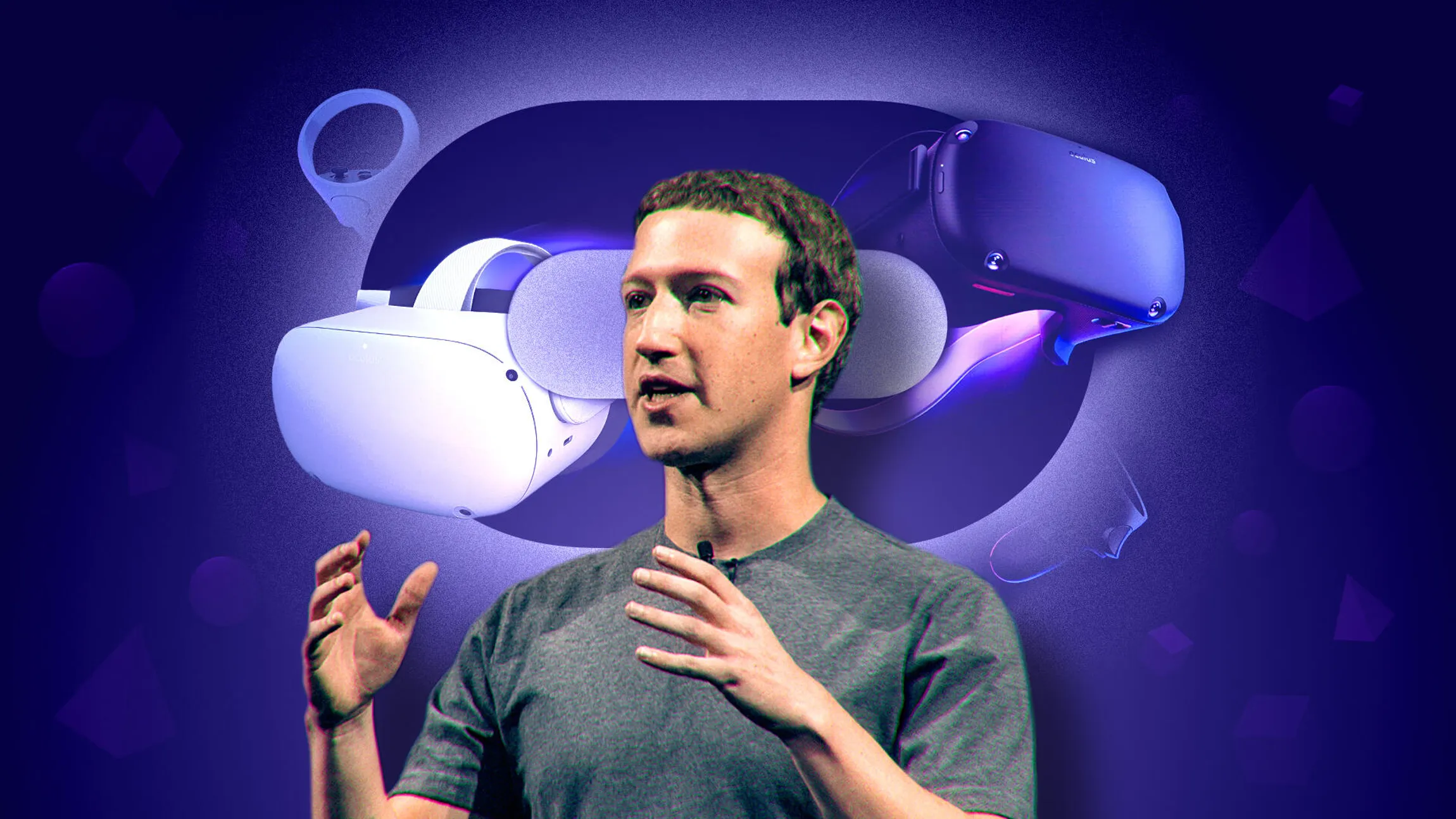The Remarkable Comeback of Mark Zuckerberg
Mark Zuckerberg’s journey from Metaverse missteps to AI mastery is one of tech’s greatest comebacks. Explore how Meta’s AI innovations, social media strategies, and AR breakthroughs have revived the company and its CEO's reputation.

Mark Zuckerberg’s journey in the tech world has never been short of drama. From the moment he launched Facebook in his Harvard dorm room, his story has been filled with intense highs and lows, turning him into one of the most polarizing figures in the industry. But perhaps the most intriguing chapter in Zuckerberg’s saga is his recent resurgence. After what seemed like a disastrous detour into the Metaverse—a pivot that caused Meta’s stock to tank and made Zuckerberg a punching bag for critics—he has made a remarkable comeback, transforming both his personal and Meta’s fortunes.
Today, Zuckerberg stands at the helm of a rejuvenated Meta, fueled by advancements in artificial intelligence and the rollout of cutting-edge augmented reality (AR) technology. But this is a comeback that wasn’t guaranteed; it took a series of calculated moves, bold strategies, and a fair share of luck to turn things around.
So how did Zuckerberg go from being ridiculed for his Metaverse obsession to becoming one of the leading figures in the AI revolution? How did Meta’s stock rebound, and what role did new products like AR glasses and AI dubbing features play in this comeback? This is the story of a tech mogul who bet big on the future, stumbled, but ultimately emerged stronger than ever.
The Metaverse Misstep: Betting Big and Losing… For a While
When Zuckerberg announced Meta’s pivot to the Metaverse in October 2021, it was supposed to be the next big leap in technology. The Metaverse was envisioned as a fully immersive virtual world where people could work, play, and socialize. It sounded futuristic, even sci-fi-esque, and Zuckerberg was confident that Meta would lead the charge in making this vision a reality. He renamed the company from Facebook to Meta, reflecting his commitment to this new direction.
But the Metaverse was expensive—very expensive. Meta poured billions into developing the technology, but the returns were slow to materialize. For months, the company’s stock was in freefall. Investors were growing impatient, questioning whether Zuckerberg’s vision was realistic or just a costly pipe dream. By mid-2022, Meta had lost nearly $600 billion in market value, and critics were quick to jump on the bandwagon, calling Zuckerberg out for what seemed like a major miscalculation. Some even began to question whether Meta could recover.
The World vs. Zuckerberg: The Public Backlash
It wasn’t just Meta’s stock that took a beating. Zuckerberg’s personal reputation also took a massive hit. He was mocked in the media for his stubborn focus on the Metaverse, and his public appearances—often in front of virtual avatars—became meme fodder. It didn’t help that around this time, Meta was also grappling with ongoing concerns about privacy, data security, and the societal impacts of Facebook and Instagram, especially in light of the Cambridge Analytica scandal.
For a while, it seemed like Zuckerberg had lost touch with reality—both figuratively and literally. The Metaverse was supposed to be his crowning achievement, but instead, it was turning into his greatest failure.
Enter AI: The Savior of Meta?
Zuckerberg, however, wasn’t about to let the critics define his legacy. While the Metaverse vision continued to simmer in the background, he shifted gears and focused Meta’s efforts on an area that was proving to be much more promising: artificial intelligence. By mid-2023, the tech world was in the midst of an AI revolution, and Zuckerberg saw an opportunity to make Meta a key player in this space.
This wasn’t an entirely new direction for Meta. The company had already been investing in AI for years, particularly in its ad-targeting algorithms. But now, Zuckerberg wanted to push the envelope even further. In mid-2023, Meta released its Llama models, a family of advanced AI systems that could rival the likes of OpenAI’s GPT and Google’s Bard. These models were not just theoretical; they were being integrated into Meta’s existing products, from Instagram to Messenger, creating new user experiences driven by AI.
But the real turning point came in late 2023, when Meta rolled out new versions of Llama, positioning the company as a leader in the development of AI technologies. The Llama models weren’t just large-scale models for research purposes; they were practical tools that could be used in a wide variety of applications, from generating text and images to assisting with complex tasks like content moderation. Meta’s AI infrastructure was suddenly getting noticed, and investors started to pay attention again.
Stock Rebound: A Lesson in Patience
As Meta’s AI capabilities began to take center stage, the stock market started to reflect this newfound optimism. After months of declines, Meta’s stock began to recover, buoyed by the company’s strong financial performance and its leadership in AI development. By early 2024, Meta was once again one of the hottest stocks in tech, and Zuckerberg’s critics were noticeably quieter.
But the stock rebound wasn’t just about AI. Meta had also been making smart moves on the social media front. The launch of Threads, a Twitter-like platform that aimed to capitalize on the chaos surrounding Elon Musk’s acquisition of Twitter (now X), was a masterstroke. Threads quickly gained traction, drawing in users who were disillusioned with Musk’s erratic management of Twitter. With its smooth interface and integration into Instagram, Threads became a quick hit, further boosting Meta’s stock.
Personal Redemption: BJJ, Surfing, and Public Drama
While Zuckerberg was focused on turning Meta’s fortunes around, he was also in the public eye in ways that had nothing to do with technology. His much-publicized feud with Elon Musk, which culminated in a proposed MMA-style cage fight, became a bizarre but fascinating subplot to the broader narrative of tech titans clashing. The fight never happened, but the drama kept Zuckerberg in the headlines, portraying him as a billionaire willing to throw down, literally, for his vision.
At the same time, Zuckerberg was showing a more personal side. He took up Brazilian jiu-jitsu (BJJ) and posted about his training on social media, portraying himself as a tech mogul who could grapple both in the boardroom and on the mat. This side of Zuckerberg—a disciplined, health-conscious, and somewhat relatable figure—was a far cry from the awkward, hoodie-wearing CEO that people had grown accustomed to seeing in congressional hearings. Beyond BJJ, Zuckerberg was also spotted engaging in a range of outdoor activities, including surfing and hydrofoiling, showing a new dimension to his personal life. This public embrace of health, fitness, and outdoor pursuits resonated with many who had once seen him as the epitome of an awkward, tech-obsessed billionaire.
Orion and the Future of AR: A Glimpse into Tomorrow
But Zuckerberg’s comeback isn’t just about AI and social media. His vision for the future still involves immersive technologies like AR and VR, albeit with a more measured approach. In late 2024, Meta unveiled Orion, its long-awaited AR glasses, as well as a more affordable version of the Quest headset for VR. These products are part of Zuckerberg’s broader strategy to create a hardware ecosystem that blends seamlessly with Meta’s software offerings.
Orion AR glasses are a key part of Zuckerberg’s plan to integrate augmented reality into everyday life, allowing users to interact with digital information in real-time without being tethered to a smartphone or computer screen. Paired with Meta’s AI models, Orion promises to make AR experiences more intuitive, practical, and engaging.
Another key feature launched in 2024 was AI-powered dubbing on Instagram. This tool allows creators to have their videos dubbed into different languages in real-time, broadening their global reach and making content accessible to a wider audience. AI dubbing isn’t just a gimmick—it represents a broader push to use AI in enhancing the creator economy, an area that Meta has been doubling down on.
While AR and VR still have a long way to go before they reach mainstream adoption, the launch of Orion is significant. It shows that Zuckerberg hasn’t abandoned his vision for a more immersive internet—he’s just taking a more strategic approach to get there. The Metaverse may not have panned out exactly as planned, but AR glasses like Orion could still become a major part of how people interact with digital content in the future.
The Road Ahead: Meta’s AI-Driven Future
So what’s next for Zuckerberg and Meta? If recent trends are any indication, the company will continue to double down on AI. The success of the Llama models has positioned Meta as a leader in the AI space, and the company is likely to continue investing heavily in this area. Meanwhile, Zuckerberg’s interest in AR and VR shows no signs of waning, meaning we can expect more innovations in the hardware space as well.
In many ways, Zuckerberg’s comeback story is a testament to the power of long-term thinking. While the Metaverse may not have delivered the immediate results that he hoped for, his ability to pivot to AI and focus on what’s working has paid off handsomely. Meta is once again a company on the rise, and Zuckerberg’s place as one of tech’s most influential figures has been cemented.
It’s easy to forget how dire things looked for Zuckerberg just a couple of years ago. His Metaverse gamble seemed like a colossal mistake, and Meta’s stock was in freefall. But today, thanks to a combination of AI breakthroughs, smart product launches, and a bit of personal reinvention, Zuckerberg is back on top. It’s a remarkable turnaround, and one that few could have predicted.
Mark Zuckerberg’s comeback isn’t just a win for Meta—it’s a reminder that even in the cutthroat world of tech, second acts are possible if you’re willing to learn from your mistakes, adapt, and keep pushing forward.
